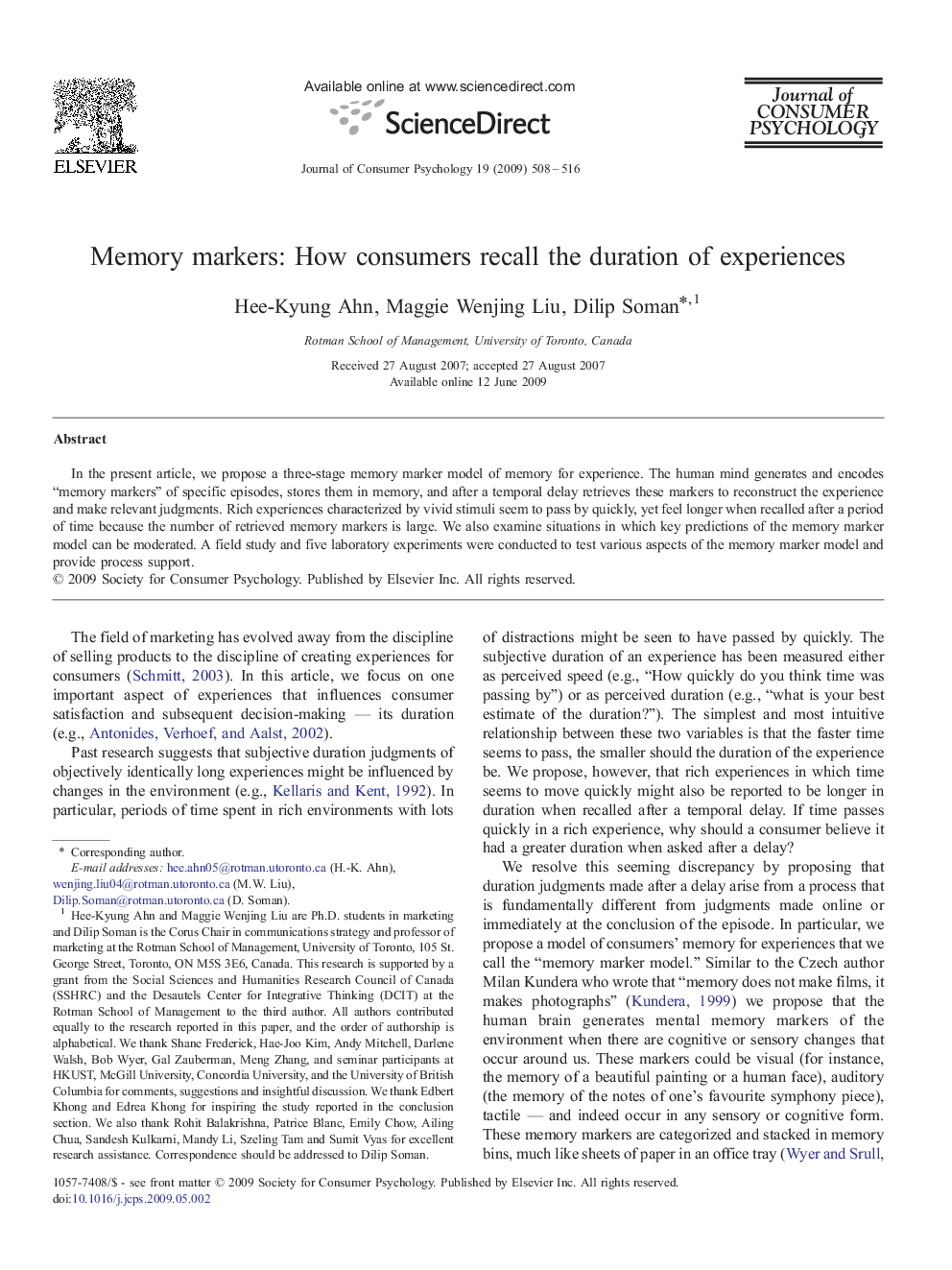| Article ID | Journal | Published Year | Pages | File Type |
|---|---|---|---|---|
| 882500 | Journal of Consumer Psychology | 2009 | 9 Pages |
Abstract
In the present article, we propose a three-stage memory marker model of memory for experience. The human mind generates and encodes “memory markers” of specific episodes, stores them in memory, and after a temporal delay retrieves these markers to reconstruct the experience and make relevant judgments. Rich experiences characterized by vivid stimuli seem to pass by quickly, yet feel longer when recalled after a period of time because the number of retrieved memory markers is large. We also examine situations in which key predictions of the memory marker model can be moderated. A field study and five laboratory experiments were conducted to test various aspects of the memory marker model and provide process support.
Related Topics
Social Sciences and Humanities
Business, Management and Accounting
Marketing
Authors
Hee-Kyung Ahn, Maggie Wenjing Liu, Dilip Soman,
